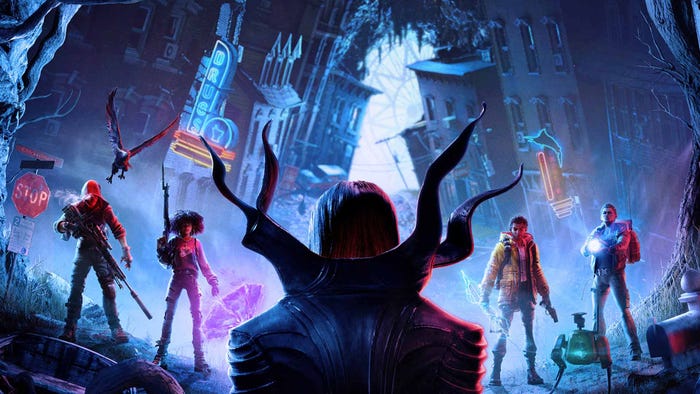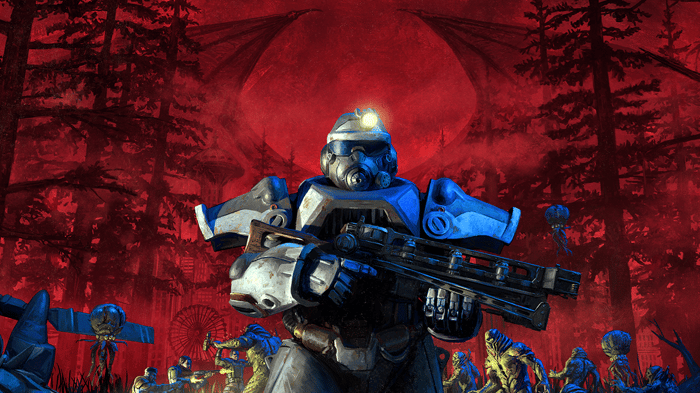5 tips from the producer of Dark Souls
Being a producer isn't easy -- balancing the needs of the game, the team, and upper management -- but Kei Hirono knows his job well, and here shares insight gained over his career at Bandai Namco games.

Being a producer isn't easy. You have to balance the desires with the development team with those of management -- while keeping everyone on the same page, keeping the game on track for release, and making sure that it meets the needs of the business and, most importantly, the players. Kei Hirono knows a lot about this struggle. He's best known as the producer of Dark Souls -- one of the best-loved games of the current generation -- but he works on other titles, too, in his job as a producer at Bandai Namco Games' Tokyo headquarters. Gamasutra recently caught up with him in San Franciso, where he was promoting the upcoming release of his latest game, Time and Eternity (pictured below). Our time with Hirono was short, but we were able to assemble this list of tips for successful game development -- including topics like working with multiple companies, keeping management and developers in balance, gaining the trust of your dev team, and what to do in a crisis.
1. Getting developers to trust you
Hirono is a producer on the publisher side -- which can put him at loggerheads with the development teams he works with, which are generally external to the company, like From Software, which developed Dark Souls. How do you get an external developer to trust you? "By trusting them. That's the most important thing; to have that back-and-forth," Hirono says. There is, of course, an impediment to that. "It's easy for a publisher to see the developer as working below them in a way, ordering them around like that. I think it's vital that you go with a style that's more together -- 'Let's do this together, let's get this going.'" He says that it's key to remember that the relationship between publisher and developer is a partnership. Personal communication is also important to building this relationship, he says: "this is something you often see in Japan, but some people don't look at people in the face and speak honestly with them, or pay attention to what they're doing. I think it's best to do that, arguing with each other over whether we should do this or do that."
2. Balancing the desires of management and developers
 While he agrees that it's a producer's job to keep management pressure off of the development team, "that's not all of it." There is, he says, another side to this story. "The goals of a producer are naturally going to be based on the goals of the company they're working for. It's important for the development studio and me to be working together as a team, but part of the job does also involve using what your boss tells you to place some pressure on the dev side." "You can't work that way all the time, of course," he continues. "Pressure like that only works if you pick the right time and situation to use it. It's a balance you have to achieve as you work." While Hirono thinks that business concerns are "equally important" to creative ones when developing games, neither is so important "to the point where I'd simply take demands from the business and development sides like a robot." "I have to factor in what direction we want to take the project, and how we can best work together," Hirono says. The most important factor is identifying what the game really needs, Hirono says, particularly when development reaches a crisis point. "I try to give respect to what the other party wants to do as much as possible. While keeping that in mind, I try to do away with things that aren't useful or are getting in the way. These are things that maybe even the developer realizes need to be cut, but the thing with game creators is they often start with oversized dreams. "I think part of my job is to help guide these dreams to a point where they can reach reality. So I give them my thoughts about what parts of the project they should concentrate on and what doesn't matter as much. That's an important part of my work, and for the most part things go along pretty well."
While he agrees that it's a producer's job to keep management pressure off of the development team, "that's not all of it." There is, he says, another side to this story. "The goals of a producer are naturally going to be based on the goals of the company they're working for. It's important for the development studio and me to be working together as a team, but part of the job does also involve using what your boss tells you to place some pressure on the dev side." "You can't work that way all the time, of course," he continues. "Pressure like that only works if you pick the right time and situation to use it. It's a balance you have to achieve as you work." While Hirono thinks that business concerns are "equally important" to creative ones when developing games, neither is so important "to the point where I'd simply take demands from the business and development sides like a robot." "I have to factor in what direction we want to take the project, and how we can best work together," Hirono says. The most important factor is identifying what the game really needs, Hirono says, particularly when development reaches a crisis point. "I try to give respect to what the other party wants to do as much as possible. While keeping that in mind, I try to do away with things that aren't useful or are getting in the way. These are things that maybe even the developer realizes need to be cut, but the thing with game creators is they often start with oversized dreams. "I think part of my job is to help guide these dreams to a point where they can reach reality. So I give them my thoughts about what parts of the project they should concentrate on and what doesn't matter as much. That's an important part of my work, and for the most part things go along pretty well." 
3. Leaving room for expression
Even though managing the balance between the developer's ideals and the hard realities of the publisher means living in a difficult reality, Hirono knows it's still crucial to leave room for developers to express themselves. He got his start on the Bandai side of things -- pre-Namco merger -- where games were almost always externally developed and almost always based on licenses. There is one thing to bear in mind when working with a licensed title, Hirono says: "if you don't have a team who really understands and loves the thing they're working with, that can really screw things up. First, you have to get them into the property, and I devote a lot of time making sure that the staff fully understands it." Given the size of the company and the number of projects Bandai Namco has going at any one time, Hirono also can't always pick the games he works on. In situations like that, he says, he can make the best of it -- and still learn. "Even in cases when the company assigns me something, there's usually still room for me to explore what I want to do. I think I've been lucky to be able to work on a lot of projects like that," he says.
4. Synchronizing multiple parties isn't easy
One part of a producer's job can be to take the work of different companies and bring it together into a whole: one single game. Even if you already know one of the parties, though, you can't be lulled into a false confidence, Hirono warns. For Time and Eternity, the game's 2D graphics were produced by animation company Satelight, while the game was developed by JRPG specialist studio Imageepoch. "This was the first time I had worked with Imageepoch -- I've known the people at Satelight for a long time, so that was all right. But I hadn't worked simultaneously with both outfits before, so it sometimes got real tough," Hirono says. "There were a few occasions where we'd get animation product that just didn't fit in with the game at all. So I'd yell at them, saying things like 'We can't use this at all! It's all too different from the rest of the package.' So in that way, development can often seem like a struggle."
5. The most important thing to remember
Even if things look bleak, there's one absolutely crucial thing to keep in mind, Hirono says. "For me, I think it's having passion, or enthusiasm -- really knowing what you want to do with a project. That's important to me, to uphold that. If you don't have it..." The thing is, though, that projects are long, and the developers can lose that spark. Just one person doing so is enough, says Hirono. "Well, it requires a lot of different people to create a game, but if you don't have at least one person on the team who has and retains that kind of passion, it's going to just dissipate over time. I believe that the more of that heated enthusiasm you have, the longer it'll last, and the more it'll come through to gamers in the final product." Dont miss: A journey into the dark -- a Dark Souls interview with Kei Hirono
About the Author(s)
You May Also Like













